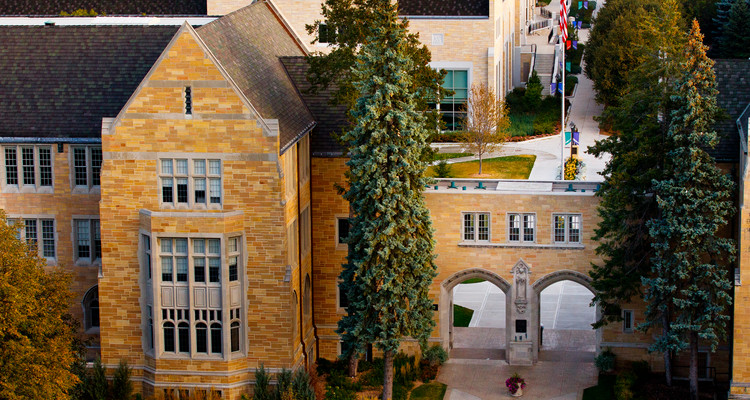Tuition rates will rise 3.9 percent beginning this summer for undergraduate students – the same increase as each of the last two years and tied for the second-lowest rate increase in 22 years – and graduate program tuition will rise an average of 2.8 percent.
Day undergraduate tuition and mandatory fees of $39,594, when combined with 4 percent and 3 percent increases in room and board rates, will result in a comprehensive fee of $49,354, or 3.8 percent higher than this year. (See tables for details on tuition, room and board increases.)
As in recent years, undergraduate tuition of $1,210 per credit will cover all courses except business, statistics, computer and information sciences, and information and decision theory. Those courses will be $1,270.50 per credit, or 5 percent higher, because of the higher cost of faculty in those areas.
Graduate and professional programs have flexibility on tuition increases, depending on their markets and competition. There will be no tuition increase in nine programs – all M.A. programs in the College of Arts and Sciences (Art History, Catholic Studies, English and Music), M.S. in Accountancy, M.S. in Real Estate and three doctoral programs (Leadership, Organizational Development and Professional Psychology).
All master’s degree programs in the College of Education, Leadership and Counseling will reduce tuition in an effort to attract more students. Tuition will drop 9.1 percent (from $825 to $750 per credit) for education students and 5.1 percent (from $790 to $750 per credit) for psychology students.
“The decision to decrease or hold flat our tuition comes in Twin Cities area markets that are highly competitive for graduate students, especially in business, education and psychology,” said Dr. Richard Plumb, executive vice president and provost. “We also are pleased we will be able to keep tuition increases in other programs at or below 4 percent.”
The Board of Trustees approved these rates at its Feb. 11 meeting. Mark Vangsgard, vice president for business affairs and chief financial officer, indicated that other elements of the new budget will be approved as the university gains additional information on expected 2016-17 undergradate and graduate enrollment and the financial impact of the university’s strategic realignment.
Tuition rates for next year have not been set at all of Minnesota’s private colleges, but St. Thomas will remain moderately priced for its undergraduate programs. This year, St. Thomas again ranks 8th in comprehensive fee (as well as eighth in tuition and eighth in room and board) among 12 similar members of the Minnesota Private College Council. (See table for details.)
More than 90 percent of undergraduate students – and virtually every freshman – receive financial aid through scholarships, grants, loans and campus employment. St. Thomas subsidizes the education of all students, including those who do not receive financial aid, because tuition covers only 80 percent of operating expenses. The remaining 20 percent comes from gifts, endowment and investment earnings, and contributed services of religious personnel.
Undergraduate enrollment is projected to increase slightly this fall, with a target of 1,685 new students, including 1,445 freshmen (1,375 domestic and 70 international) and 240 transfer students. Last fall, there were 1,647 new students (1,421 freshmen and 226 transfers). Graduate enrollment is projected to grow slightly, with growth occurring primarily in the College of Education, Leadership and Counseling, the School of Social Work and the School of Engineering (and its Graduate Programs in Software).







